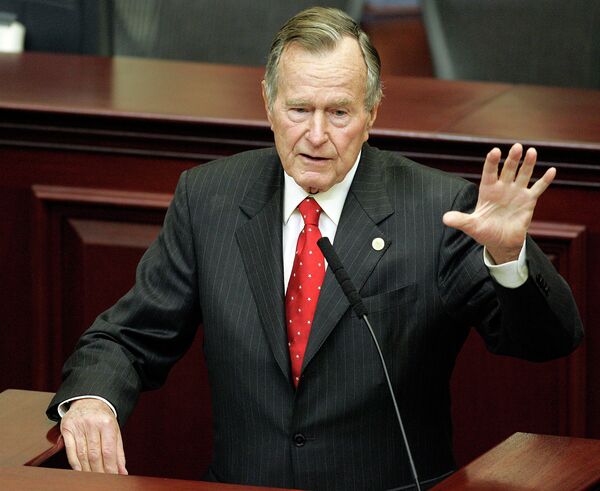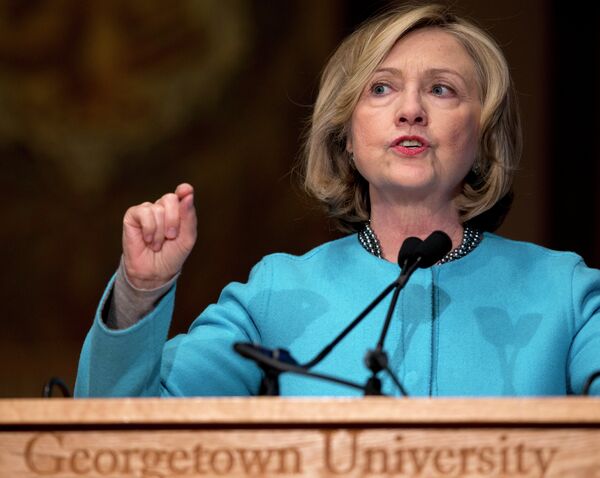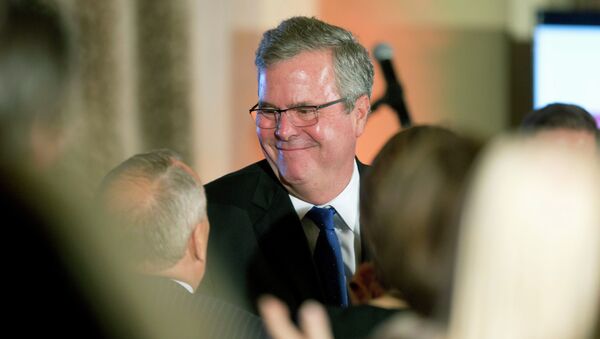Via Facebook, Bush announced that he will be establishing a political action committee to gauge whether or not a run for president will be a viable option. While this announcement remains purely exploratory, Bush plans to announce his official decision to run for a Republican nomination after spending the next year touring key states, speaking with voters, and strategizing with political donors.
— Jeb Bush (@JebBush) December 16, 2014
The Long Road Ahead
A potential run for Bush could have its share of obstacles. The son of former President George H.W. Bush and brother of former President George W. Bush, a Jeb Bush candidacy would have to contend with voters wary of electing another member of the Bush family.

However, distancing himself from the conservative policies of his older brother’s legacy could prove to be detrimental in such a polarized political climate. Bush has showed support for legal status, though not full citizenship, for undocumented immigrants. He has also shown support for the Common Core, the controversial education standards loathed by some on the right as a federal intrusion into the classroom.
Of course, the vast political connections of the Bush family could give Jeb Bush a serious advantage.
A Bush candidacy could also see a showdown between the former governor and Senator Marco Rubio, both favored candidates from Florida.
There are also concerns as to Bush’s resilience. Not having run a campaign since 2003, many question whether he has the vigor necessary to run on the national level, and whether his family is prepared to bear the intense scrutiny. Still, Bush’s Facebook post seems to indicate that discussion with his family strongly encouraged his decision.
"As a result of these conversations and thoughtful consideration of the kind of strong leadership I think America needs, I have decided to actively explore the possibility of running for President of the United States," he said.
A Fight for the Ages
While the Republican primaries are sure to be contentious, a Bush name on the presidential ballot could be especially noteworthy because of the current Democratic favorite, Hillary Clinton. A Bush-Clinton ticket would echo the 1992 election between Bill Clinton and George H.W. Bush, and set the stage for a battle between two of America’s most established political families.

Bush’s decision to broadcast his announcement through social media could also signal 2016 as the first election in which both political parties make competitive use out of digital media. While Democrats were able to utilize the internet to reach the youth vote through both of Obama’s campaigns, Republican challengers have had a harder time developing effective social media strategies.
An October Reuters/Ipsos poll of voters in Iowa showed Bush tied with Scott Walker for fourth place, trailing 2012 nominee Mitt Romney, Wisconsin U.S. Representative Paul Ryan, and New Jersey Governor Chris Christie.
Richard Schwarm, a former Iowa state Republican Party Chairman, says that while some of Bush’s policies may hurt his chances with the far-right, he’s still very optimistic about his chances.
"Iowans will give him a serious look," Schwarm said. "And that’s all candidates can ask for. It’s up to him to make the sale to Iowans."
Whether this holds true for the American public remains to be seen.


